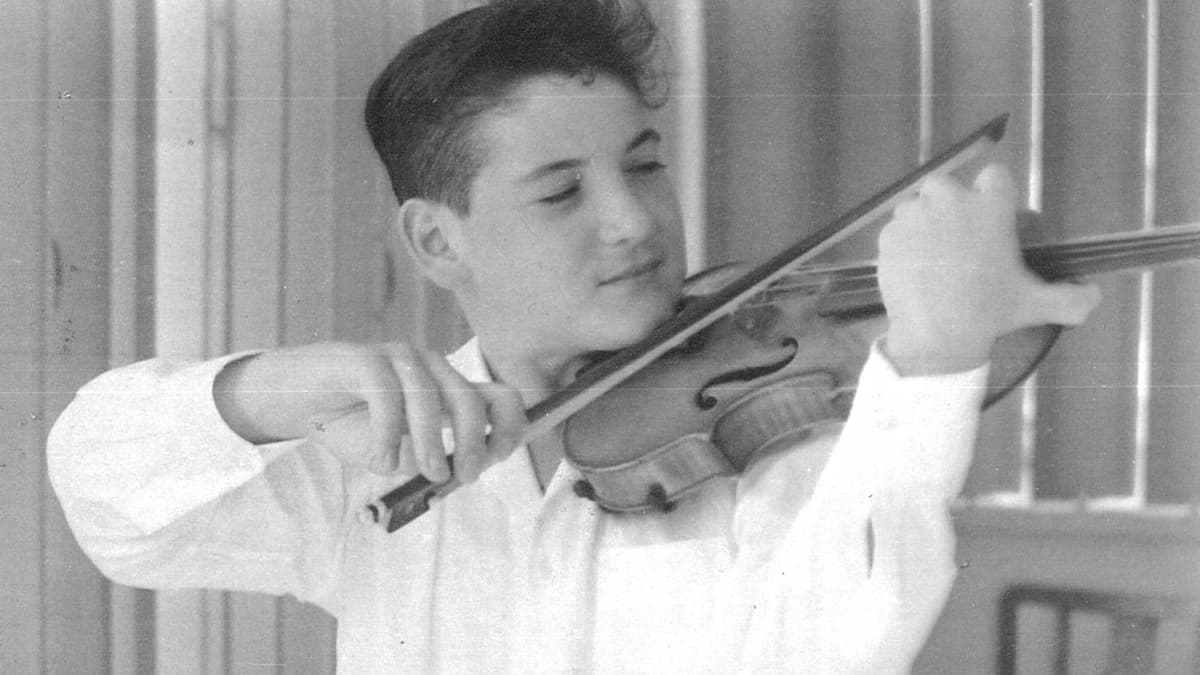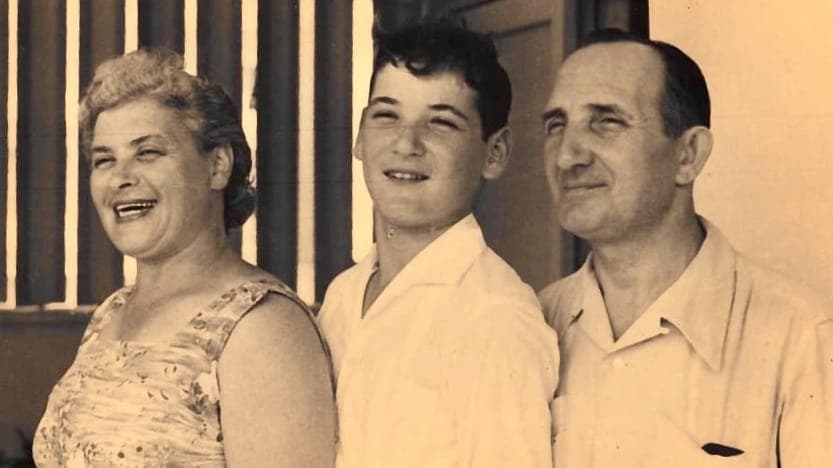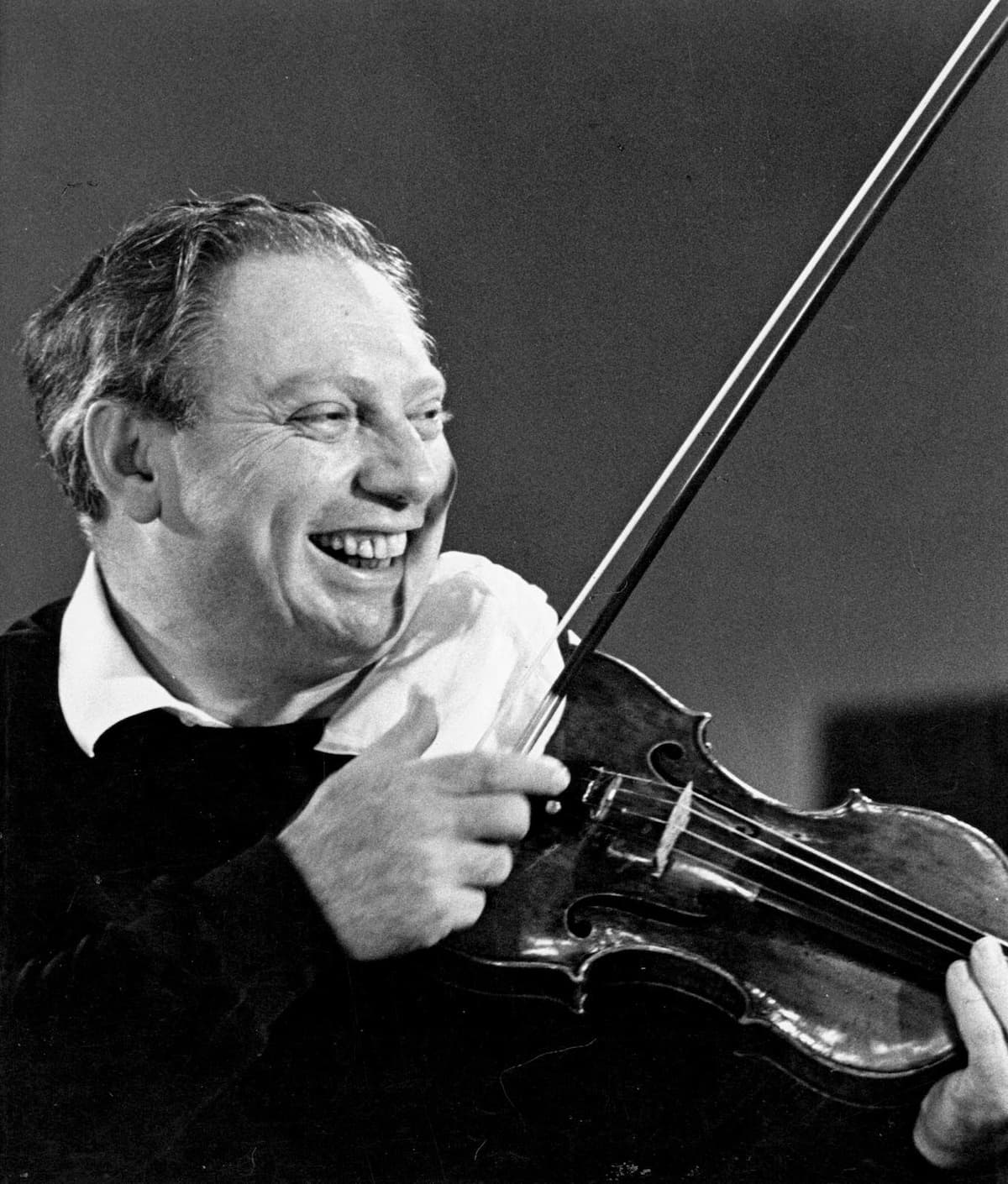To watch Pinchas Zukerman perform, a scholar writes, “Gives the deceptive impression that violin playing is not really all that difficult. There is nothing labored, nothing studied about the way he handles the instrument, though, this inborn ability had to be developed, polished, and directed.”

The young Pinchas Zukerman
Born in Tel Aviv on 16 July 1948, Zukerman was the son of Polish immigrants. His father was a violinist, and he gave “Pinky” his first violin lessons. His musical abilities developed rapidly, as did his belief in himself. “Jesus, was I arrogant,” he told in an interview. “But I had a reason to be, I guess. It was put in my head that I was good and, of course, after a while you start believing it. I didn’t have the emotional support to know there was so much I had to learn.” The great violinist Isaac Stern remembers, “Pinky was a brassy kid. He put his two feet down, stared you in the eye, and dared you not to like it. He had such marvelous impudence.”
Pinchas Zukerman Performs Bach’s Brandenburg Concerto No. 3, BWV 1048
Zukerman entered the Tel-Aviv Academy of Music at the age of eight and studied with the renowned Hungarian violinist Ilona Feher. She had been a student of Hubay, and like his parents, was a Holocaust survivor. Feher was a cultural pioneer, establishing the “Ilona Feher Foundation,” to support the welfare of young, promising Israeli artists. Zukerman remembers, “from day one, I started to play little duets with my father, and then chamber music with Ilona Feher at the conservatory. All these extraordinary people, after the war they came. Oedoen Partos and Ben-Haim and all these people were there. There was a community that was rebuilding a whole resource of emotion, and beautiful stuff that was being written. Isaac and Vera Stern created the America-Israel Cultural Foundation. We played for all the dignitaries, Casals and the Budapest Quartet and Maureen Forrester, and a whole bunch of people that always came to Israel, usually during the summer. We had a wonderful festival. And so I played.” Under Feher’s tutelage, Zukerman progresses at an impressive rate, and Isaac Stern and Pablo Casals first heard him play in 1961.
Johannes Brahms: Violin Sonata No. 2 in A Major, Op. 100 (Pinchas Zukerman, violin; Daniel Barenboim, piano)

Pinchas Zukerman and his parents
Stern and Casals set up a scholarship fund that enabled Zukerman to enter the Juilliard School of Music, with Stern acting as his legal guardian. Zukerman remembers, “When I was 13-and-a-half I was plucked away. My father thought it was a very good idea. My mother, of course, said, ‘No.’ And then he said, ‘Look, we have no choice. We have no money. He has to have an education. He has an opportunity here to have the best there is.” One day he had been a talented kid growing up in Israel, and in 1962 found himself as a teenager far away from home. “I went quite berserk,” Zukerman explains. “My first impression of New York was incredible. To see those skyscrapers, snow, winter, and coats. None of that had existed for me. I started to smoke right away and went to the pool hall on 96th Street with the bums. At one time I was playing pool until six, seven o’clock in the morning. I was a complete bum myself.” Zukerman is adamant that he learned all there was to learn about life on the streets of New York City.
Ernő Dohnányi: Serenade in C Major, Op. 10 (Itzhak Perlman, violin; Pinchas Zukerman, viola; Lynn Harrell, cello)

Isaac Stern in 1966
Zukerman was assigned to study with Ivan Galamian, but as he freely admits, “Music, my fiddle, became secondary to me. I did go to my lessons, to school and all that business… I just couldn’t sit in a classroom. I have a horrible, horrible… I really can’t stand it when someone is telling me what “2x” means, I don’t care.” Zukerman proudly explains that he went to more rehearsals and concerts than sitting “in a damn classroom.” However, Zukerman confessed that he “had the benefit of teachers who had tremendous patience of how to deal with an absurd brain like mine.” Around the age of 14, a conductor encouraged him to take up the viola, explaining, “that there would be better chances of getting into ensembles, college, and job.” Zukerman fell in love with the sonority of the instrument and began to participate in chamber ensembles. He performed at the 1966 Spoleto Festival in Italy, and the very next year he became the joint winner of the Leventritt Memorial Competition.
For more of the best in classical music, sign up for our E-Newsletter
